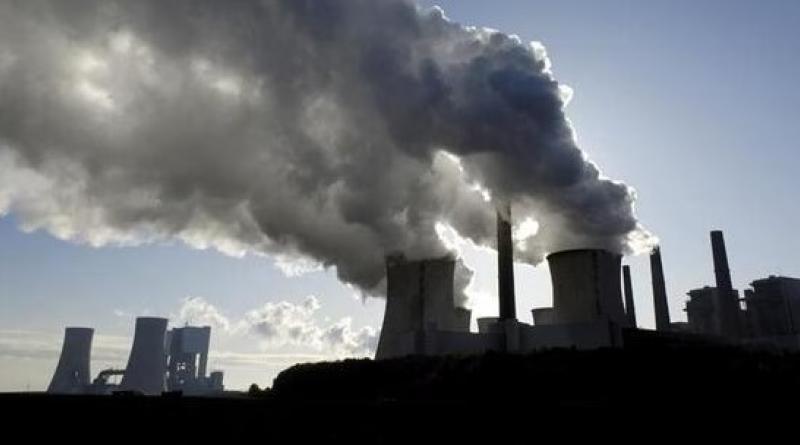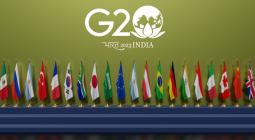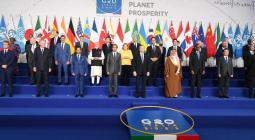Little breakthrough likely on climate action, hints G20 draft

A G20 Communique drafts circulating has raised concerns on whether the G20 will provide clear goals on a peaking year for emissions globally
New Delhi: A leaked draft of the paragraphs on climate change from one of G20 Communique drafts circulating has raised concerns on whether the G20 will provide clear goals on a peaking year for emissions globally; trebling of renewable energy capacity; and phasing down fossil fuels which are critical for meeting Paris Agreement goals.
G20 countries had failed to agree on these critical issues of climate crisis mitigation at the G20 environment and climate ministerial in Chennai. The draft states that G20 nations responsible for 80% global emissions will continue their efforts to meet the Paris Agreement goal of keeping global temperature rise this century well below 2 degrees Celsius above pre-industrial levels and to pursue efforts to limit it to 1.5 degrees Celsius.
“We reiterate our resolve to pursue further efforts to limit the increase to 1.5° C. This will require meaningful and effective actions and commitment by all countries, considering different approaches, through the development of clear national pathways that align long term ambition with short and medium-term goals, and with international cooperation and support, including finance and technology and sustainable and responsible consumption and production as critical enablers, in the context of sustainable development,” the draft states. There continue to be brackets around the goal of global peaking by 2025.
The Intergovernmental Panel on Climate Change said last year that limiting global warming to 1.5 degrees C above pre-industrial levels will now require global greenhouse gas (GHG) emissions to peak before 2025 at the latest and be reduced by 43% by 2030.
There are also brackets around “We recall that the United Nations Framework Convention on Climate Change (UNFCCC) noted that the largest share of historical and current global emissions of GHGs has originated in developed countries.”
This indicates there are red lines over acknowledging historical responsibility.
The communique or the chair’s summary is also expected to urge all countries that have not yet aligned their nationally determined contributions (NDCs) with the temperature goal of the Paris Agreement, to revisit and strengthen the 2030 targets in their NDCs, as necessary, by the end of 2023, taking into account different national circumstances.
“There may be significant directions for the future and COP 28 but there are no clear numbers or timelines in the draft yet,” said a senior delegate from a non-G20 observer country.
“G20 leaders face a moral imperative: commit to an equitable phase-out of gas, oil, and coal; end fossil fuel subsidies by 2030; and triple renewable energy capacity annually by that same deadline. Anything less is an abdication of responsibility. Carbon capture and storage technologies are nothing more than dangerous distractions; genuine innovation is a must. Furthermore, wealthier nations must not just meet, but exceed, the $100 billion annual commitment to climate finance—recalibrating for a needs-based target from 2025 onward. The clock is ticking, and half-measures are no longer an option”, said Harjeet Singh, head of global political strategy at Climate Action Network International
Ahead of the Leaders’ Summit on September 9 and 10, global energy think tank Ember released a report on per capita coal emissions of G20 countries on Tuesday. Australia and South Korea stood out as the top two coal power polluters per capita among the G20 in 2022, an unchanged status since 2020, according to the analysis.





